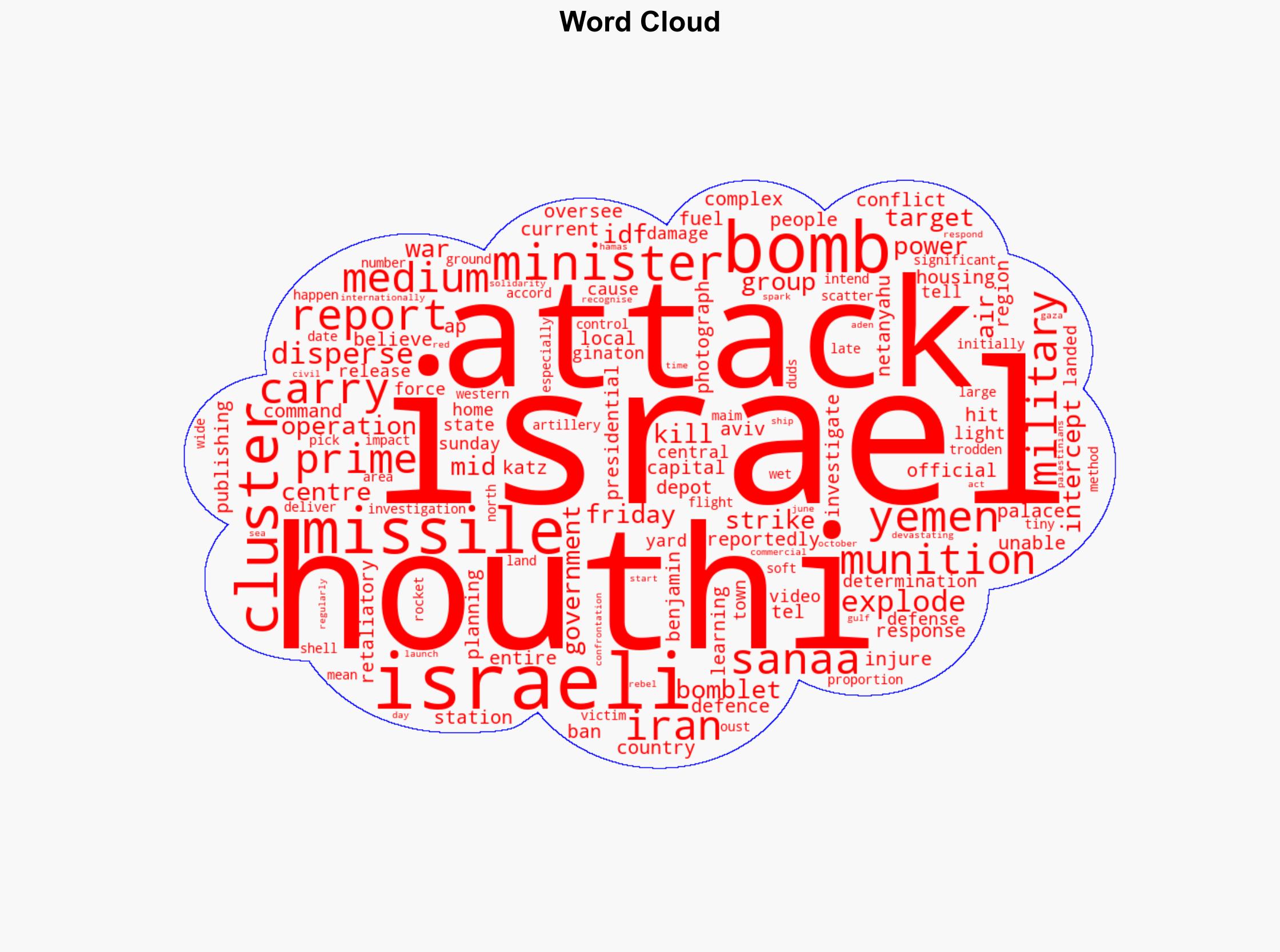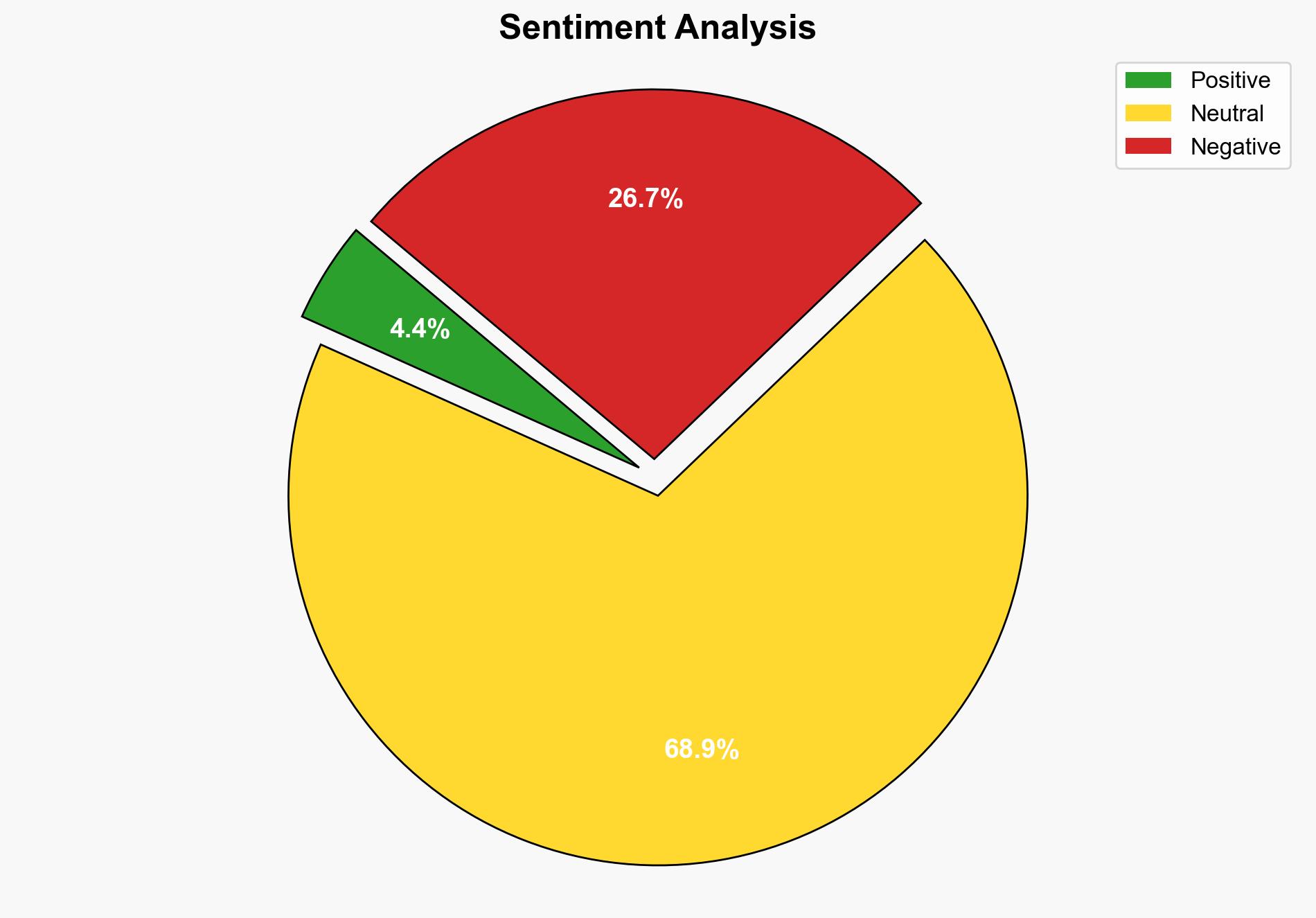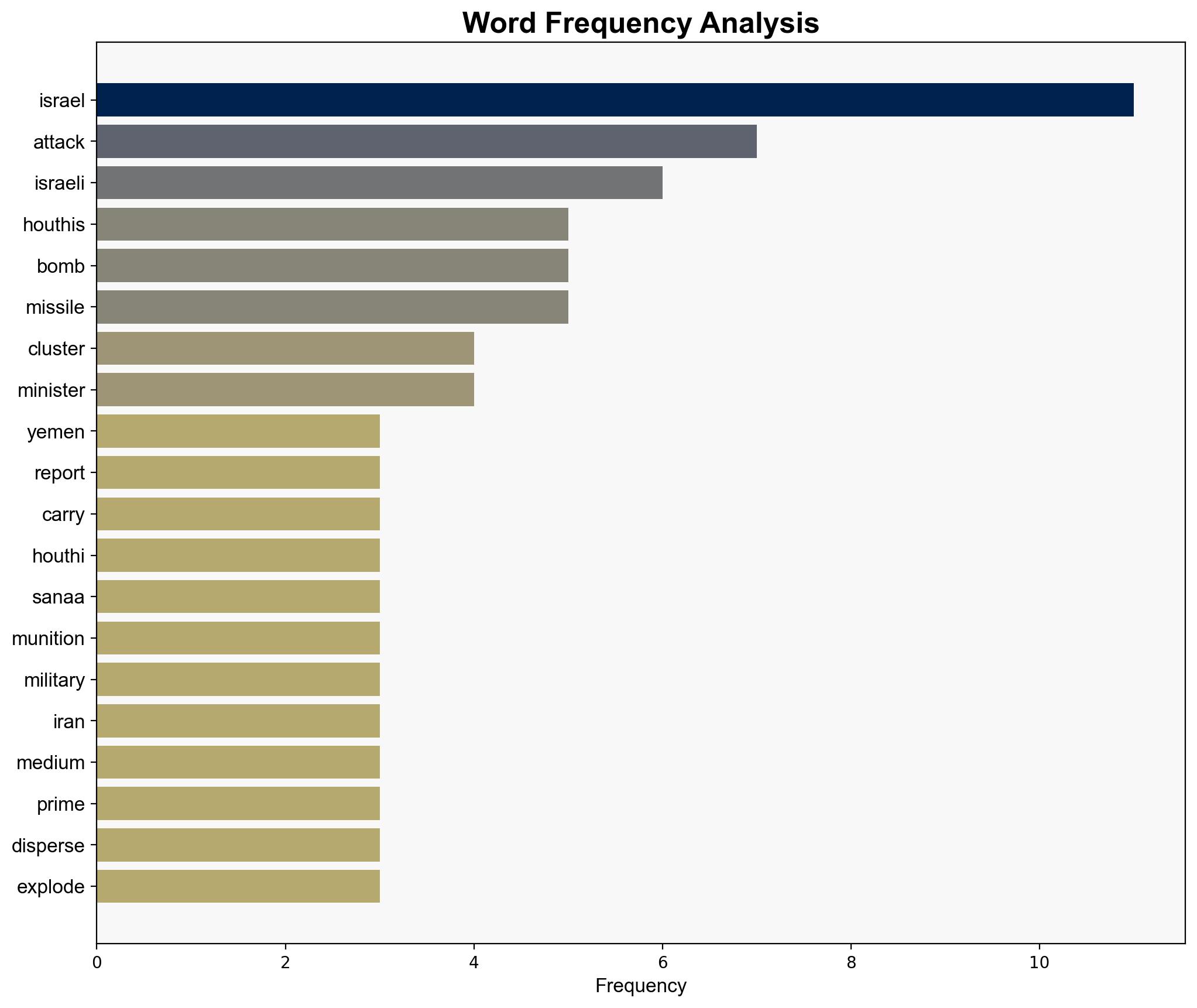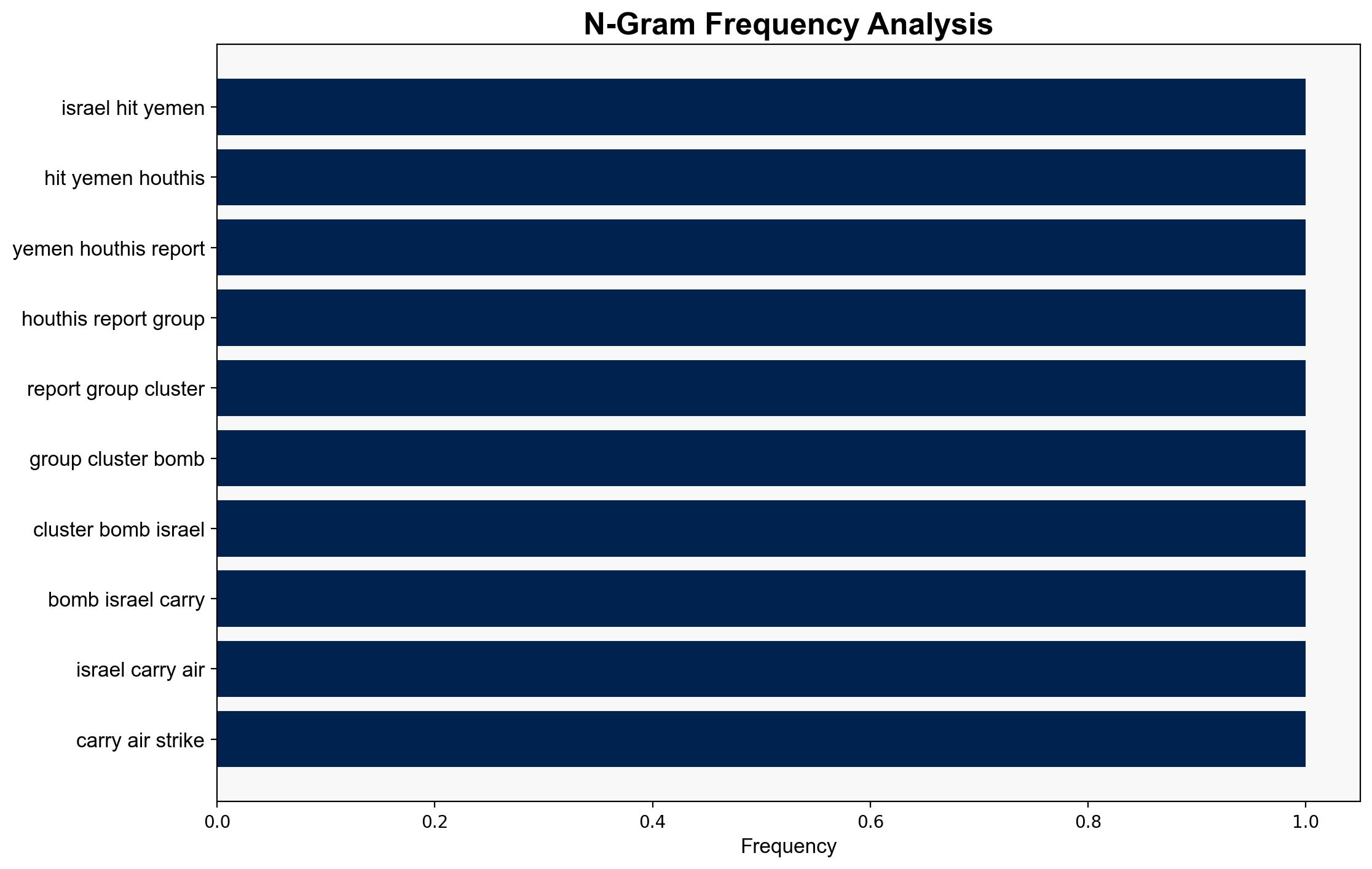Israel hits Yemen’s Houthis after reports group used cluster bomb – BBC News
Published on: 2025-08-24
Intelligence Report: Israel hits Yemen’s Houthis after reports group used cluster bomb – BBC News
1. BLUF (Bottom Line Up Front)
The most supported hypothesis is that Israel’s airstrike on Houthi targets in Yemen was a direct response to a missile attack involving cluster munitions, which Israel attributes to the Houthis. This action underscores Israel’s strategic posture against threats perceived to be backed by Iran. Confidence in this hypothesis is moderate due to the complexity of regional dynamics and potential misinformation. Recommended action includes increased intelligence sharing with regional allies and bolstering missile defense systems.
2. Competing Hypotheses
1. **Hypothesis A**: Israel’s airstrike was a direct retaliation against the Houthis for using cluster munitions in a missile attack, reflecting a broader strategy to deter Iranian influence in the region.
2. **Hypothesis B**: The airstrike was a preemptive measure by Israel to disrupt potential future threats from the Houthis, possibly exaggerated by intelligence to justify military action.
Using the Analysis of Competing Hypotheses (ACH) 2.0, Hypothesis A is better supported due to the immediate temporal link between the missile attack and the airstrike, as well as Israel’s historical pattern of direct retaliation. Hypothesis B lacks direct evidence of an imminent threat requiring preemptive action.
3. Key Assumptions and Red Flags
– **Assumptions**: It is assumed that the Houthis were indeed responsible for the missile attack and that the cluster munitions were used as reported. Another assumption is that Israel’s military response is solely defensive.
– **Red Flags**: The potential for misinformation or propaganda from involved parties, particularly regarding the origin and intent of the missile attack. The lack of independent verification of the cluster munitions use is a significant gap.
4. Implications and Strategic Risks
The airstrike could escalate tensions in the region, potentially drawing in other actors such as Iran, which supports the Houthis. This could lead to broader conflict involving maritime security in the Red Sea and Gulf of Aden. Economically, disruptions in these areas could impact global shipping routes. Geopolitically, increased hostilities might strain Israel’s relations with other regional players and complicate international diplomatic efforts.
5. Recommendations and Outlook
- Enhance regional missile defense systems to mitigate future threats.
- Increase intelligence cooperation with regional allies to verify claims and counter misinformation.
- Scenario Projections:
- Best Case: De-escalation through diplomatic channels, leading to a ceasefire agreement.
- Worst Case: Regional conflict escalation involving multiple state and non-state actors.
- Most Likely: Continued tit-for-tat exchanges with intermittent diplomatic interventions.
6. Key Individuals and Entities
– Benjamin Netanyahu
– Israel Katz
– Israeli Defense Forces (IDF)
– Houthi leadership
7. Thematic Tags
national security threats, regional conflict, missile defense, Middle East geopolitics





